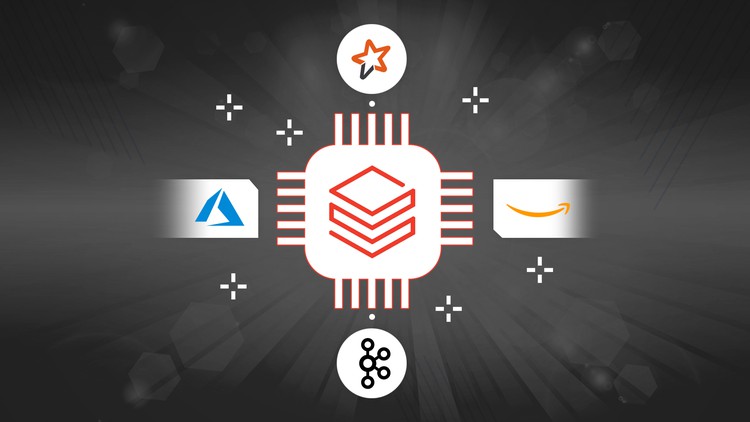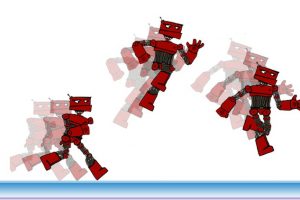Data Engineering using Databricks features on AWS and Azure
Build Data Engineering Pipelines using Databricks core features such as Spark, Delta Lake, cloud files, etc.
What you’ll learn
Data Engineering using Databricks features on AWS and Azure
-
Data Engineering leveraging Databricks features
-
Databricks CLI to manage files, Data Engineering jobs, and clusters for Data Engineering Pipelines
-
Deploying Data Engineering applications developed using PySpark on job clusters
-
Deploying Data Engineering applications developed using PySpark using Notebooks on job clusters
-
Perform CRUD Operations leveraging Delta Lake using Spark SQL for Data Engineering Applications or Pipelines
-
Perform CRUD Operations leveraging Delta Lake using Pyspark for Data Engineering Applications or Pipelines
-
Setting up the development environment to develop Data Engineering applications using Databricks
-
Building Data Engineering Pipelines using Spark Structured Streaming on Databricks Clusters
-
Incremental File Processing using Spark Structured Streaming leveraging Databricks Auto Loader cloud files
-
Overview of AutoLoader cloud files File Discovery Modes – Directory Listing and File Notifications
-
Differences between Auto Loader cloud files File Discovery Modes – Directory Listing and File Notifications
-
Differences between traditional Spark Structured Streaming and leveraging Databricks Auto Loader cloud files for incremental file processing.
Requirements
-
Programming experience using Python
-
Data Engineering experience using Spark
-
Ability to write and interpret SQL Queries
-
This course is ideal for experienced data engineers to add Databricks as one of the key skills as part of the profile
Description
As part of this course, you will learn all the Data Engineering using cloud platform-agnostic technology called Databricks.
About Data Engineering
Data Engineering is nothing but processing the data depending upon our downstream needs. We need to build different pipelines such as Batch Pipelines, Streaming Pipelines, etc as part of Data Engineering.
All roles related to Data Processing are consolidated under Data Engineering. Conventionally, they are known as ETL Development, Data Warehouse Development, etc.
About Databricks
Databricks is the most popular cloud platform-agnostic data engineering tech stack. They are the committers of the Apache Spark project. Databricks run time provide Spark leveraging the elasticity of the cloud. With Databricks, you pay for what you use. Over a period of time, they came up with an idea of Lakehouse by providing all the features that are required for traditional BI as well as AI & ML. Here are some of the core features of Databricks.
- Spark – Distributed Computing
- Delta Lake – Perform CRUD Operations. It is primarily used to build capabilities such as inserting, updating, and deleting the data from files in Data Lake.
- cloudFiles – Get the files in an incremental fashion in the most efficient way leveraging cloud features.
Course Details
As part of this course, you will be learning Data Engineering using Databricks.
- Getting Started with Databricks
- Setup Local Development Environment to develop Data Engineering Applications using Databricks
- Using Databricks CLI to manage files, jobs, clusters, etc related to Data Engineering Applications
- Spark Application Development Cycle to build Data Engineering Applications
- Databricks Jobs and Clusters
- Deploy and Run Data Engineering Jobs on Databricks Job Clusters as Python Application
- Deploy and Run Data Engineering Jobs on Job Cluster using Notebooks
- Deep Dive into Delta Lake using Dataframes
- Deep Dive into Delta Lake using Spark SQL
- Building Data Engineering Pipelines using Spark Structured Streaming on Databricks Clusters
- Incremental File Processing using Spark Structured Streaming leveraging Databricks Auto Loader cloud files
- Overview of AutoLoader cloud files File Discovery Modes – Directory Listing and File Notifications
- Differences between Auto Loader cloud files File Discovery Modes – Directory Listing and File Notifications
- Differences between traditional Spark Structured Streaming and leveraging Databricks Auto Loader cloud files for incremental file processing.
We will be adding few more modules related to Pyspark, Spark with Scala, Spark SQL, Streaming Pipelines in the coming weeks.
Desired Audience
Here is the desired audience for this advanced course.
- Experienced application developers to gain expertise related to Data Engineering with prior knowledge and experience of Spark.
- Experienced Data Engineers to gain enough skills to add Databricks to their profile.
- Testers to improve their testing capabilities related to Data Engineering applications using Databricks.
Prerequisites
- Logistics
- Computer with decent configuration (At least 4 GB RAM, however 8 GB is highly desired)
- Dual Core is required and Quad-Core is highly desired
- Chrome Browser
- High-Speed Internet
- Valid AWS Account
- Valid Databricks Account (free Databricks Account is not sufficient)
- Experience as Data Engineer especially using Apache Spark
- Knowledge about some of the cloud concepts such as storage, users, roles, etc.
Associated Costs
As part of the training, you will only get the material. You need to practice on your own or corporate cloud account and Databricks Account.
- You need to take care of the associated AWS or Azure costs.
- Need to take care of the associated Databricks costs.
Training Approach
Here are the details related to the training approach.
- It is self-paced with reference material, code snippets, and videos provided as part of Udemy.
- One needs to sign up for their own Databricks environment to practice all the core features of Databricks.
- We would recommend completing 2 modules every week by spending 4 to 5 hours per week.
- It is highly recommended to take care of all the tasks so that one can get real experience of Databricks.
- Support will be provided through Udemy Q&A.
Who this course is for:
- Beginner or Intermediate Data Engineers who want to learn Databricks for Data Engineering
- Intermediate Application Engineers who want to explore Data Engineering using Databricks
- Data and Analytics Engineers who want to learn Data Engineering using Databricks
- Testers who want to learn Databricks to test Data Engineering applications built using Databricks
- Last updated 8/2021









